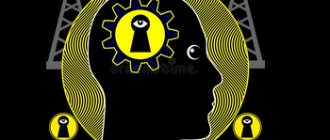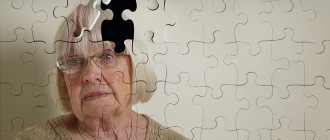Is schizophrenia a hereditary disease or an acquired one? What influences the occurrence? Is it possible to say in advance whether there will be schizophrenia or not? Are there tests for schizophrenia? Many researchers are trying to answer this question.
Recently, more and more data indicate that modern nutrition and alcohol abuse, drug use stimulate the formation of this disease. At the very beginning, we want to note that schizophrenia is treatable. This is not a life sentence. Our patients who have undergone treatment successfully complete their studies at universities, work in prestigious organizations, and occupy good positions. The best results can be obtained in the early stages of formation. The situation is worse when the treatment was not correct or some psychologist or illiterate psychotherapist tried to carry it out. In this case, various complications can be expected.
The transmission of mental illness by inheritance is far from an idle issue. What should you do if there are people with schizophrenia among your relatives or your significant other? A natural question arises: is schizophrenia a hereditary disease or not?
There was a time when there was talk that scientists had found 72 genes for schizophrenia. Several years have passed since then and the research data have not been confirmed. Until now, scientists all over the world are trying to find the cause of schizophrenia in heredity. However, so far no one has succeeded.
Is schizophrenia a hereditary disease?
All the talk that it is possible to establish schizophrenia using special blood tests or genetic tests and carry out treatment on this basis is nothing more than just talk. They are not based on officially confirmed facts. However, many of today's healers are trying to sell air, in the form of genetic or other tests for schizophrenia.
Although, one of the well-known theories of the formation of schizophrenia is based on genetic origin. Quite a few doctors classify schizophrenia as a genetically determined disease. However, structural changes in certain genes could not be identified.
A set of defective genes has been identified that can disrupt brain function, but it cannot be said that this leads to the development of schizophrenia. Specific facts do not confirm this. It is not possible, after conducting a genetic examination, to say whether a person will develop schizophrenia or not.
If we follow the theory about the origin of schizophrenia as a hereditary disease, then a huge number of people who become ill for the first time fall out of this theory. Those who do not have parents or grandparents in their family tree who had this disease.
Despite the lack of scientifically proven statistical data and the lack of a direct connection between the heredity of schizophrenia in the formation of the disease, a certain connection can be traced with the older generation. It was found that 30% of patients with schizophrenia had close relatives, father, mother, grandmother, grandfather, or the older generation of direct relatives, who had evidence of mental disorders. In the remaining part of the patients, no hereditary predisposition was identified.
Therefore, based on statistical data, we can talk about the likelihood that schizophrenia is a hereditary disease in only 30% of cases.
Theory of schizophrenia
Since the origin of the disease is unknown, medical scientists have identified several hypotheses for the occurrence of schizophrenia:
- Genetic – in twin children, as well as in families where parents suffer from schizophrenia, the most common manifestation of the disease is observed.
- Dopamine - human mental activity depends on the production and interaction of the main mediators, serotonin, dopamine and melatonin. There is increased stimulation of dopamine receptors in the limbic region of the brain. However, this causes the manifestation of productive symptoms, in the form of delusions and hallucinations, and does not in any way affect the development of negative symptoms - apatho-abulic syndrome: decreased will and emotions.
- Constitutional is a set of psychophysiological characteristics of a person: gynecomorphic men and pyknic-type women are most often found among patients with schizophrenia. Patients with morphological dysplasia are considered to be less responsive to treatment.
- The infectious theory of the origin of schizophrenia is currently of more historical interest than it has any basis. Previously, it was believed that staphylococcus, streptococcus, tuberculosis and E. coli, as well as chronic viral diseases reduce human immunity, which is supposedly one of the factors in the development of schizophrenia.
- Neurogenetic - a mismatch between the work of the right and left hemispheres due to a defect in the corpus callosum, as well as a violation of the fronto-cerebellar connections leads to the development of productive manifestations of the disease.
- Psychoanalytic - explains the appearance of schizophrenia in families with a cold and cruel mother, an oppressive father, the lack of warm relationships among family members, or their manifestation of opposite emotions to the same behavior of the child.
- Environmental – mutagenic influence of unfavorable environmental factors and lack of vitamins during fetal development.
- Evolutionary - increasing the intelligence of people and increasing technocratic development in society. Nature is trying to improve brain function, but it fails.
To date, the cause of schizophrenia has not been fully established.
Negative symptoms of schizophrenia
What are the symptoms of schizophrenia?
Negative disorders are so called because they impair the patient's normal abilities and reactions.
Their manifestations may be impoverishment of emotions or their absence, apathy - reluctance to do anything, disturbances of volitional activity - inability to force oneself to carry out the necessary procedures, abulia - complete indifference to everything, and a decrease in mental activity - difficulties with remembering and thinking.
A person wants literally nothing: to communicate with people, to do anything - including work or basic self-care, to remember, eat and talk. His emotions practically disappear - only aggression and irritation remain, which appear when trying to get him out of this state, and his vocabulary noticeably decreases.
Almost 80% of children with autism have mental disorders January 20, 2021172
Autism and schizophrenia - is there a connection between them?
This disorder, in which the patient completely withdraws into his inner world, can also develop in schizophrenia.
Often, loved ones mistake this behavior for the consequences of treatment with heavy drugs, and, unfortunately, refuse it, which only makes it worse for the patient - without suitable means it is impossible to cope with such a condition.
How is schizophrenia diagnosed?
Diagnosis of schizophrenia is based on:
- a thorough analysis of symptoms;
- analysis of the individual formation of the nervous system;
- information about next of kin;
- conclusion of pathopsychic diagnostics;
- monitoring the reaction of the nervous system to diagnostic drugs.
These are the main diagnostic measures to establish a diagnosis. There are also other, additional individual factors that may indirectly indicate the possibility of the presence of the disease and can help the doctor.
I would like to especially note that the final diagnosis of schizophrenia is not established at the first visit to the doctor. Even if a person is urgently hospitalized in an acute psychotic state (psychosis), it is too early to talk about schizophrenia. Establishing this diagnosis requires time to monitor the patient, the reaction to the doctor’s diagnostic actions and medications. If a person is currently in psychosis, then before making a diagnosis, doctors must first stop the acute condition and only after that can a full diagnosis be carried out. This is due to the fact that schizophrenic psychosis is often similar in symptoms to some acute conditions associated with neurological and infectious diseases. In addition, one doctor should not make the diagnosis. This should happen at a medical consultation. As a rule, when making a diagnosis, the opinion of a neurologist and therapist should be taken into account.
Schizophrenia as a hereditary disease
Remember! The diagnosis of any mental disorder is not established on the basis of any laboratory or instrumental research methods! These studies do not provide any direct evidence indicating the presence of a particular mental illness.
Hardware (EEG, MRI, REG, etc.) or laboratory (blood and other biological media analysis) studies can only exclude the possibility of neurological or other somatic diseases. In practice, a competent doctor very rarely uses them, and if he does, he does so very selectively. Schizophrenia as a hereditary disease is not determined by these means.
To obtain the maximum effect of eliminating the disease, you must:
- do not be afraid, but consult a qualified specialist in time, only a psychiatrist;
- high-quality, complete diagnostics, without shamanism;
- correct complex therapy;
- the patient's compliance with all recommendations of the attending physician.
In this case, the disease will not be able to take over and will be stopped regardless of its origin. This is proven by our many years of practice and fundamental science.
The first symptoms and signs of schizophrenia
In some people, the disease schizophrenia manifests itself suddenly - literally in the middle of full health, out of the blue, but for most it happens slowly - it all starts with small warning “bells” and a gradual decrease in performance, long before the first serious attack. Often close friends and family members realize that something is wrong without even realizing what it is.
Early signs and symptoms of schizophrenia may appear to others as eccentricity, that is, strange behavior, insensitivity, isolation and lack of motivation - their owner gradually isolates, interrupting contacts, neglects his appearance, says strange things and shows indifference to life. Gradually, the illness makes him indifferent to hobbies or activities to which he previously devoted a lot of time, and academic performance or productivity at work decreases.
Bipolar affective disorder March 5, 2021414 1
How can you tell if a person has schizophrenia?
How to identify a schizophrenic by behavior?
The most common early symptoms and signs of schizophrenia are:
- Depression is not just a bad mood, but a serious illness that requires treatment.
- Social isolation is a complete lack of desire to communicate with others, even with loved ones.
- Problems with personal hygiene – reluctance to take care of yourself: to wash or brush your teeth.
- Inability to cry and rejoice violently or, on the contrary, inappropriate laughter and crying.
- The look is empty and emotionless.
- Trouble sleeping or insomnia.
- Forgetfulness and inability to concentrate.
- Strange statements, unusual manner of speech and inappropriate use of words.
Absolutely all of these symptoms can be signs not only of schizophrenia, but also of other diseases or disorders, and all of them should alert loved ones: any sudden or gradual, but noticeable change in behavior indicates health problems. The sooner a person consults a doctor and begins treatment, the fewer consequences he will face.
Suicide or suicide: why do people kill themselves? July 3, 202121836 8
The likelihood of heritability of schizophrenia
- one of the parents is sick - the risk of developing the disease is about 20%,
- a 2nd degree relative or grandparent is ill – the risk is up to 10%,
- a direct 3rd degree relative, great-grandfather or great-grandmother is ill - about 5%
- a brother or sister suffers from schizophrenia, in the absence of sick relatives - up to 5%,
- a brother or sister suffers from schizophrenia; if there are mental disorders in direct relatives of the 1st, 2nd or 3rd line, the risk is about 10%,
- when a cousin (brother) or aunt (uncle) gets sick, then the risk of disease is no more than 2%,
- if only the nephew is sick - the probability is no more than 2%,
- the probability of a disease occurring for the first time in a genealogical group is no more than 1%.
These statistics have a practical basis and speak only of the possible risk of developing schizophrenia, but do not guarantee its manifestation. As you can see, the percentage that schizophrenia is a hereditary disease is not low, but it does not confirm the hereditary theory. Yes, the largest percentage is when the disease was present in close relatives, these are parents and grandparents. However, I would like to especially note that the presence of schizophrenia or other mental disorders in close relatives does not guarantee the presence of schizophrenia in the next generation.
Is schizophrenia a hereditary disease in the female or male line?
A reasonable question arises. If we assume that schizophrenia is a hereditary disease, is it transmitted through the maternal or paternal line? According to the observations of practicing psychiatrists, as well as statistics from medical scientists, no direct pattern has been identified. That is, the disease is transmitted equally through both the female and male lines. However, there is some pattern. If some character traits were passed on, for example, from a father with schizophrenia to his son, then the likelihood of transmitting schizophrenia to his son increases sharply. If characterological characteristics are passed on from a healthy mother to her son, then the likelihood of the son developing the disease is minimal. Accordingly, in the female line there is the same pattern.
The formation of schizophrenia most often occurs under the influence of combined factors: heredity, constitutional features, pathology during pregnancy, child development in the perinatal period, as well as characteristics of upbringing in early childhood. Chronic and severe acute stress, as well as alcoholism and drug addiction can be provoking factors for the occurrence of schizophrenia in children.
Hereditary schizophrenia
Since the true causes of schizophrenia are not known and not one of the theories of schizophrenia fully explains its manifestations, scientists and doctors are not inclined to classify schizophrenia as a hereditary disease.
If one of the parents has schizophrenia or there are known cases of the disease among other relatives, before planning a child, such parents are advised to consult a psychiatrist. An examination is carried out, the probabilistic risk is calculated and the most favorable period for pregnancy is determined.
We help patients not only with inpatient treatment, but also try to provide further outpatient and socio-psychological rehabilitation, telephone number of the Preobrazhenie clinic is 8 (800) 2000109.










